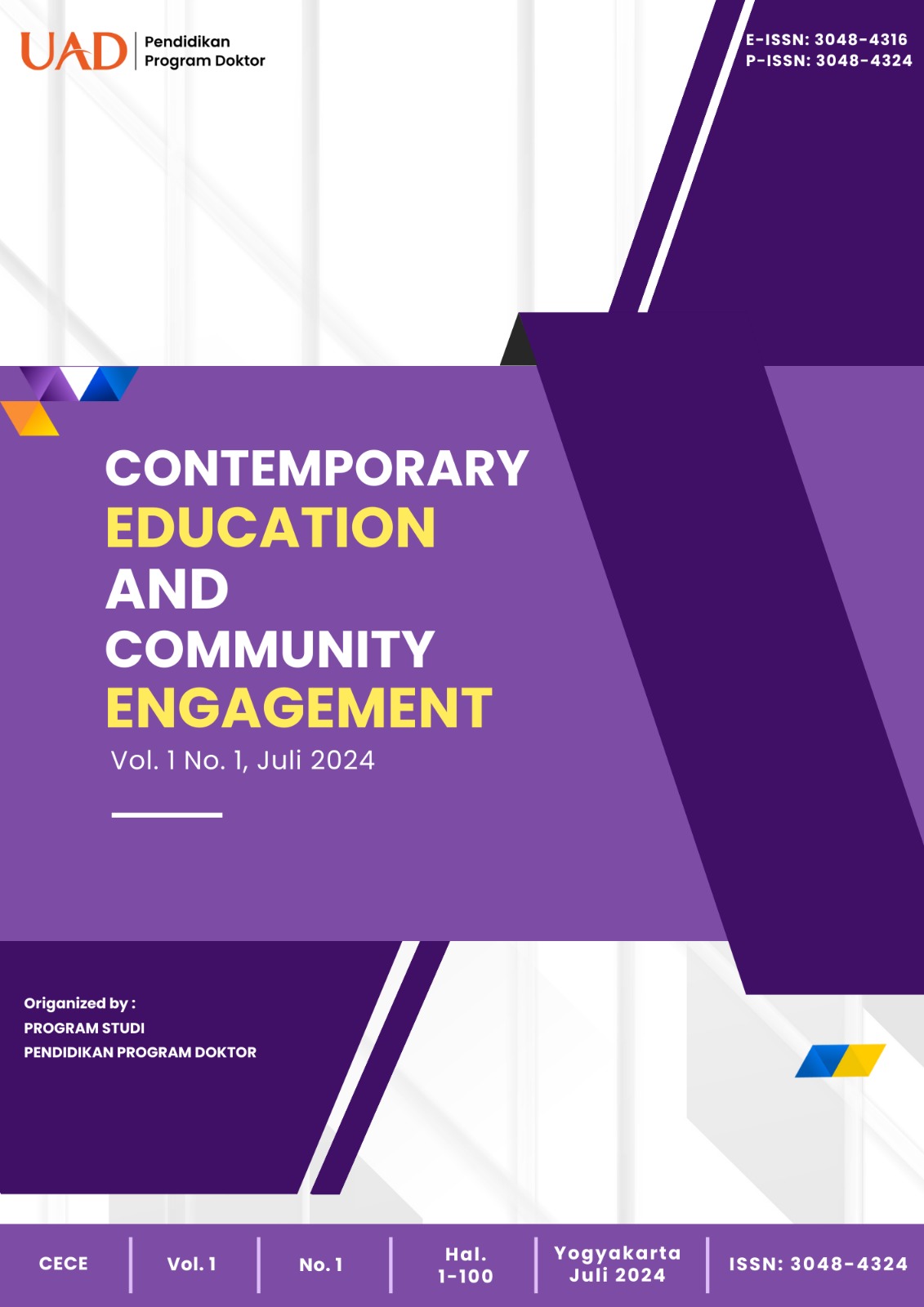Improving Knowledge and Skills of Mosque Teenagers in Da’wah Communication: A Case Study on Community Engagement in Ganggong Hamlet, Sleman Regency
DOI:
https://doi.org/10.12928/cece.v1i1.952Keywords:
Communication, Mosque Youth, Preaching, Public SpeakingAbstract
Mosque youths play an important role in fostering and empowering the people and in spreading Islamic teachings to the community. Therefore, mosque youth must be equipped with the right competencies, especially in terms of organization and other skills. This community service aims to increase the knowledge and skills of mosque youth in da'wah communication. This community service was carried out at the Al-Hikmah Mosque in Ganggong Hamlet, Bangunkerto Village, Kapanewonan Turi, Sleman Regency, Yogyakarta Special Province. The object targeted in this service is the youth of the mosque. Some of the methods used include focus group discussions (FGD), lecture methods, and public speaking science-based da’wah communication practices among teenagers. The stages of the activity include training on the management of mosque youth organizations, public speaking training, training on creating da’wah content in offline and online media/social media, and monitoring and evaluation. The results of this community service show that all community service programs have been carried out properly. Specifically, mentoring mosque youth has provided knowledge and practices related to da’wah through both offline and online media. Mosque youth partners know the benefits and can apply several techniques to create interesting and attractive da’wah content on social media. Additionally, mosque youth can effectively organize the management of mosque youth organizations as one of the pillars driving Islamic da’wah in society. Furthermore, the synergy between mosque youth and takmir (mosque management) has become an asset and reinforces the sustainability of Islamic da’wah in the local community.
Downloads
Published
How to Cite
Issue
Section
License
Copyright (c) 2024 Contemporary Education and Community Engagement (CECE)

This work is licensed under a Creative Commons Attribution-ShareAlike 4.0 International License.





